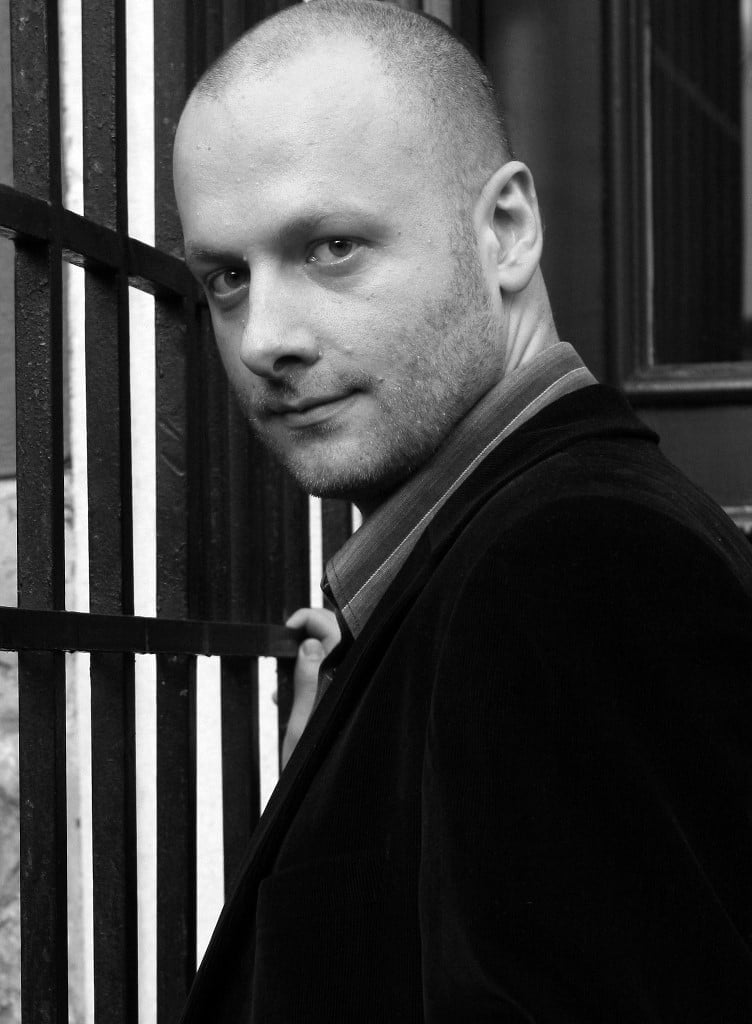
Goce Smilevski
- Macedonia
- Zu Gast beim ilb: 2017
Macedonian writer Goce Smilevski was born in 1975 in Skopje. He studied comparative literature in Skopje, Czech language and literatures in Prague and gender and cultural studies in Budapest.
Smilevski is the author of numerous plays, novels and essays, and his style has been compared to that of Hermann Broch, José Saramago and Günter Grass. He precedes each of his historical novels with careful research that creates a foundation for the open and individual artistic interpretation of each of his historical subjects. In 2000, he published his debut »Planeta na neiskustvoto« (tr. Planet of Inexperience), followed in 2002 by »Razgovor so Spinoza« (2002; Eng. »Conversation with Spinoza«, 2006). In 2003, the newspaper »Utrinski vestnik« named his work on Spinoza »Macedonian novel of the year«. In addition to an exploration of several biographical milestones and Spinoza’s overall conceptual reasoning, Smilevski also depicts the philosopher’s relationship to the Jewish community in Amsterdam, his excommunication and expulsion in 1656 as well as the feelings he harbored for his fourteen-year-old Latin teacher and later for his pupil Johannes Casearius. Smilevski presents Spinoza’s tightly woven world of ideas and shows the philosopher’s attempts to apply these concepts, all the while enriching his descriptions of Dutch life in the 17th century with subtle allusions to Darwin and Kundera. In 2010, Smilevski published his most successful novel to date, »Sestrata na Zigmund Frojd« (Eng. »Freud’s Sister«, 2012), a fictional biography of Adolfine, the titular figure, who never married or had children, lived with her parents until they died, remained in Vienna after Sigmund Freud’s emigration and died in Theresienstadt in 1943. In this book, Smilevski also retraces the hopes and yearnings of the era around 1900 and the emergence of women in a male-dominated society. His latest novel »Vrakaneto na zborovite« (2015; tr. Return of words) examines the eternal conflict between love and ambition, between ethical values and an unscrupulous quest for power. The novel focuses on the love story of Abelard and Héloïse and also features her son Astrolabe. Once again, Smilevski uses historical facts and fiction to shed light on contemporary issues and develop his anti-clerical, anti-authoritarian and pro-feminist ideas. The novel unveils a new way of seeing Héloïse as one of the most educated people of her time. Smilevski also explores the intellectual dilemmas facing modern society by deftly using the tools offered by the historical novel.
Smilevski’s novel »Freud’s Sister« has been translated into thirty languages, and received the Literature Prize of the European Union in 2010. The author lives in Skopje and is currently a guest of the DAAD Artists-in-Berlin Program.
Planeta na neiskustvoto
Sigmapres
Skopje, 2000
Razgovor so Spinoza
Dijalog Macedonia
Skopje, 2002
Freuds Schwester
Matthes & Seitz
Berlin, 2013
[Ü: Benjamin Langer]
Vrakaneto na zborovite
Dijalog Macedonia
Skopje, 2015
gocesmilevski.com
